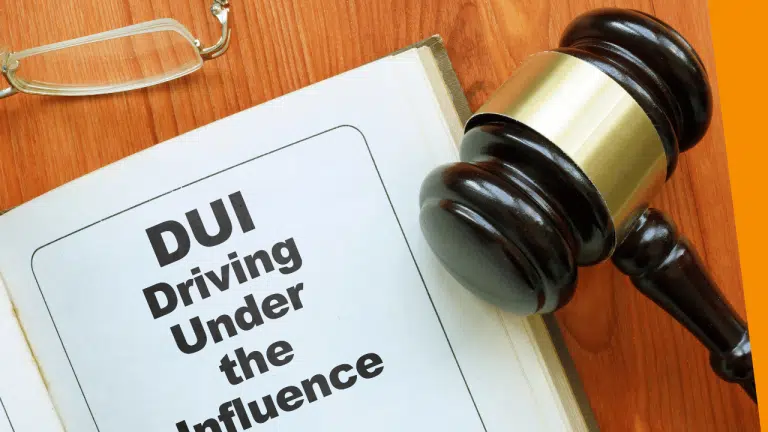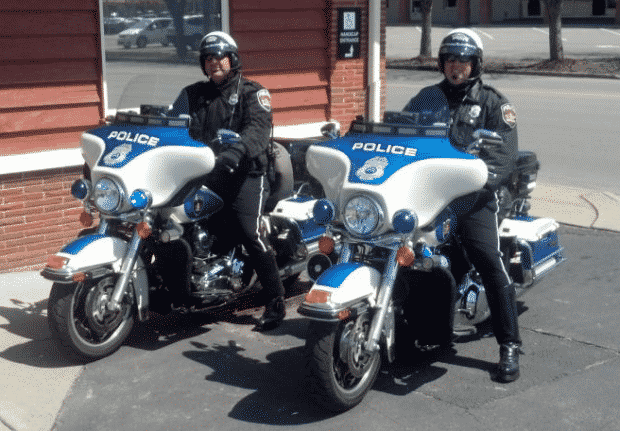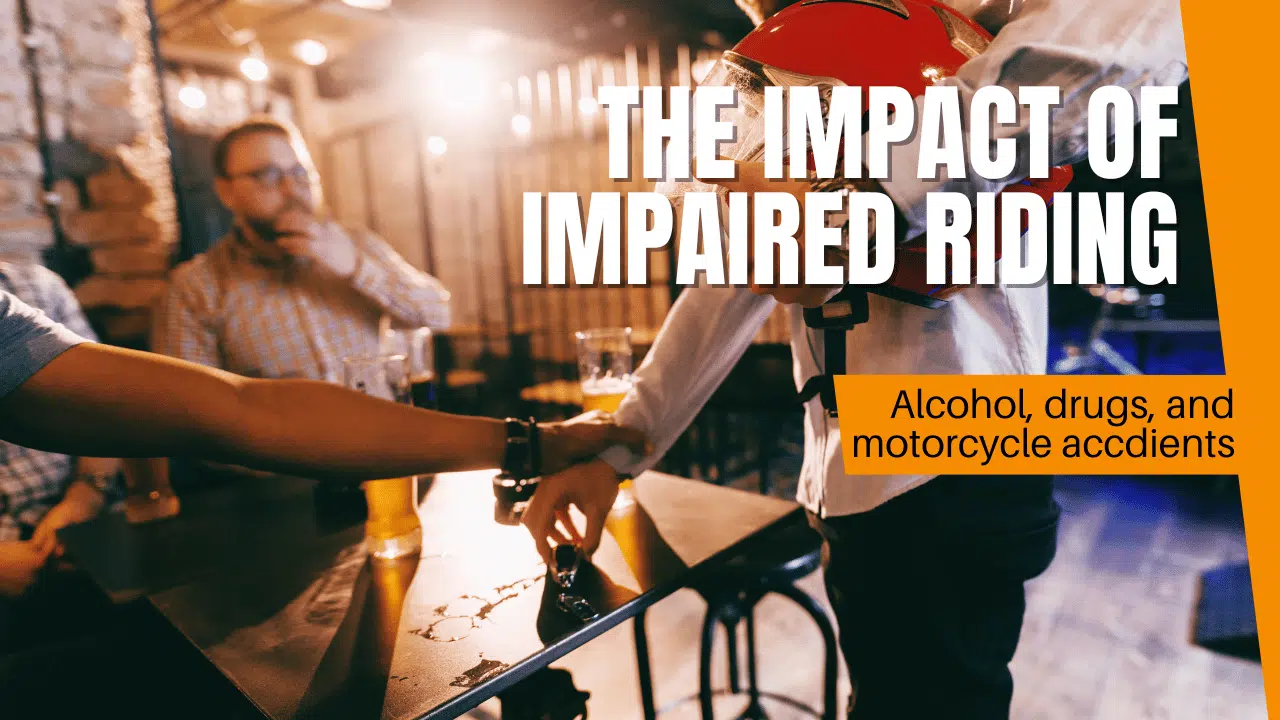The Impact of Impaired Riding: Alcohol, Drugs, and Motorcycle Accidents
It is common knowledge that operating a motorcycle under the influence of alcohol or narcotics poses significant hazards on the highway.
Surprisingly, it is still a major issue in the USA with DUI arrests and accidents rising every year.
Riding while impaired affects a motorcyclist’s judgment, coordination, reaction time, and overall cognitive abilities.
It significantly increases the risk of an accident, most likely causing severe harm or even death to riders, passengers, and others on the road.
The Effects of Alcohol on Riding Abilities
Alcohol impairs judgment, slows reflexes, and reduces coordination, all essential for safe motorcycle operation. It also affects a rider’s ability to assess risks, react to changing traffic conditions, and make sound decisions.
Alcohol-related impairments significantly increase the likelihood of accidents and the severity of injuries sustained during crashes.
Driving under the influence of alcohol can also result in jail time and/or the loss of your motorcycle license.
The Effects of Drugs on Riding Abilities
Different types of drugs, including illicit substances and certain prescription medications, can impair a rider’s cognitive and motor skills.
These substances may cause drowsiness, dizziness, blurred vision, or altered perception, hindering a rider’s ability to safely operate a motorcycle.
Drug-impaired riding jeopardizes everyone’s safety on the road and just like driving under the influence of alcohol, is illegal in all 50 states.
Legal Ramifications and Consequences

Riding a motorcycle under the influence of alcohol or drugs has severe legal consequences.
Law enforcement agencies actively target impaired riders, and penalties can include hefty fines, suspension of driving privileges, mandatory substance abuse programs, and even imprisonment.
Additionally, impaired riding may result in civil liability if an accident causes harm to others, leading to costly legal consequences.
Preventing Impaired Riding: Responsible Choices
Preventing impaired riding starts with making responsible choices. When planning your ride, it is crucial to abstain from alcohol and drugs.
Designating a sober and qualified driver or arranging alternative transportation is essential.
Taking responsibility for one’s actions and prioritizing the safety of yourself and others on the road is the foundation for preventing impaired riding incidents.
Promoting Awareness and Education
Increasing awareness about the dangers of impaired riding is essential for prevention.
Educational campaigns, community outreach programs, and rider safety initiatives are vital in educating motorcyclists about the risks of riding under the influence.
These efforts aim to change attitudes, encourage responsible behavior, and promote safety culture among riders.
Recognizing Signs of Impaired Riding
Everyone on the road including motorcycle and vehicle drivers, need to recognize the signs of impaired riding.
Some common indicators include weaving between lanes, erratic speed fluctuations, abrupt or unsafe maneuvers, delayed reactions, and impaired balance.
If you suspect a rider is under the influence, maintain a safe distance and alert local authorities if necessary to help prevent potential accidents.
Riding Sober: Ensuring Road Safety

Riding sober is paramount to ensuring road safety.
By abstaining from alcohol and drugs, motorcyclists can maintain clear judgment, sharp reflexes, and optimal physical coordination.
Riding sober enables riders to assess and respond to potential hazards effectively, increasing their safety and that of others on the road.
Support and Resources for Riders
Riders facing challenges related to alcohol or drug use can seek support from various resources.
These include substance abuse counseling, support groups, and helplines for motorcyclists.
These resources can provide guidance, assistance, and motivation to overcome substance abuse issues and make positive changes.
The Role of Community in Prevention
Preventing impaired riding requires a collective effort from the entire community.
Motorcyclists, law enforcement agencies, riding organizations, and community members must cooperate to promote responsible riding and discourage destructive riding behaviors.
By fostering a supportive and accountable community, we can create an environment that prioritizes safety on the road and reduces the incidence of impaired riding accidents.
Bottom Line
Driving under the influence is not only dangerous for the rider but also for other motorists and pedestrians.
By understanding the impact of impaired riding, promoting responsible choices, and fostering a safety culture, we can work towards preventing accidents and ensuring a safer riding experience for all.





